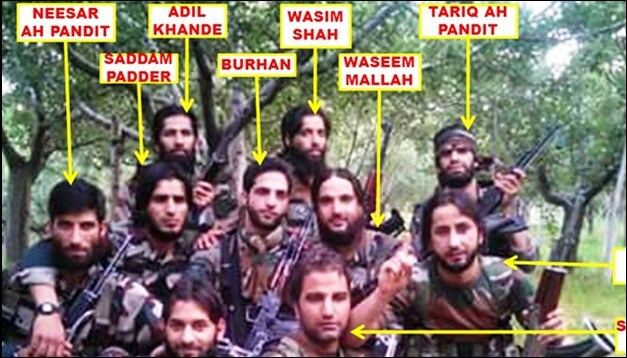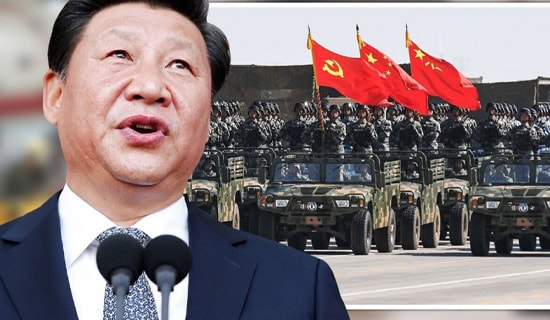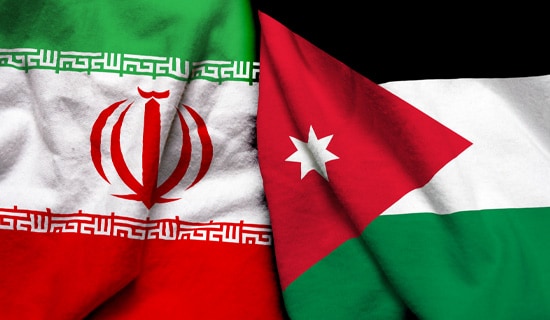
On July 8, 2016, Burhan Wani, a commander of Pakistan-backed terrorist group Hizbul Mujahideen, was killed in Kashmir by Indian security forces. The Kashmiri militant appeared on the radar of Indian security agencies last year after he posted a photograph of himself along with other militants on social media (see image below). His funeral was attended by thousands of Kashmiris. Subsequently, a Kashmiri youth stone-throwing movement re-emerged to target Indian security forces, mimicking the Palestinian Intifada.
The state of Jammu & Kashmir was ruled by Hindu king Maharaja Hari Singh at the time of the partition of India in 1947. As part of the partition, it became an autonomous territory. However, the newly-created Pakistan launched an invasion with jihadi tribals from the Pakistani tribal region, resulting in the Hindu king seeking the military help of India, which sent troops after the king signed an Instrument of Accession to India.
After India sent troops to Kashmir, a ceasefire was reached, resulting in a de facto division of Jammu & Kashmir. Since then, a part of Kashmir remains occupied by Pakistan without any legal authority, unlike India, which has an Instrument of Accession. Under a UN resolution, it was agreed that Pakistan would withdraw its troops from occupied Kashmir as a first step, and then India would subsequently reduce its military presence as a second step. Both these steps would ultimately lead to plebiscite on Kashmir. Since Pakistan was an invader state at that time, it did not work towards plebiscite by withdrawing its troops, leading India to also backtrack from the UN resolution.
Both countries describe parts of Kashmir under the other's control as "occupied." In light of the recent stone-throwing movement and the killing of the Kashmiri terrorist Burhan Wani, Pakistani Prime Minister Nawaz Sharif has directed his diplomats to raise the Kashmir issue before the world. On August 5, 2016, Urdu daily Roznama Express published an editorial endorsing the move by Sharif.
Following are excerpts from the editorial:
SUPPORT OUR WORK


Hizbul Mujahideen commander Burhan Wani in the center
"Prime Minister Nawaz Sharif has stressed to Pakistani diplomats that they must make the world aware that occupied Kashmir is not an internal Indian matter, but rather that the Kashmir issue is the foundational pillar of our foreign policy, [and that we] want to solve the issue as per United Nations resolutions and the wishes of the inhabitants of Kashmir.
"[Sharif also said that we] will not allow our territory to be used for terrorism against any country and this is the Pakistani state's clear stance. The centers of terror in Pakistan have been eliminated; we are in search of peace, though efforts for friendly relations should not be taken as a weakness. He made this important policy statement in a speech on Wednesday [August 3] at the end of a three-day conference of Pakistani diplomats deployed in important countries.
"The prime minister's expression of the view regarding the Kashmir cause is the manifestation of the fundamental Pakistani policy for a definite resolution of the Kashmir problem in view of the new context of the region's changing situation, the realities on the ground, and the movement of freedom born in Kashmir against India. This message is also for the international community [i.e. the UN], because by rejecting every resolution made by this international forum, India has made Kashmir an ulcer of its Chanakyan [i.e. Machiavelian] politics.
"Indian leader [former Home Minister P.] Chidambaram has admitted that the [opposition] Congress [party] could not win the hearts of the public in the Kashmir Valley for 50 years. India did not fulfil its promises [for plebiscite in Kashmir], so some leaders have offered suggestions for a referendum in the Kashmir Valley."
"Prominent [Indian] intellectual and analyst Prem Shankar Jha has proposed a six-point solution, in which he told the Indian government that security forces should ultimately opt for ceasefire, the police history-sheet [which lists criminals] should be declared null, the puppet Chief Minister [of Jammu & Kashmir] Mufti Mehbooba should be given aid for the amelioration of the wounds inflicted on Kashmiris, police in Kashmir should be given powers, and no fatal weapon should be used to end violence.
"In order to fulfil the promises made to the Kashmiri public at the United Nations, a just solution for the Kashmir problem should be brought before the world. World leaders, including in India, should not ignore the clamour for the freedom movement that led the Kashmiri youths to land in the [battle]field. India, the people of the occupied Jammu & Kashmir, and Pakistan are important parties to the Kashmir issue. By rejecting the United Nations resolutions, India has turned the Kashmir Valley into a killing field. The entire Kashmir Valley has become red with the blood of freedom-loving Kashmiris. However, the Kashmiri people are writing a new history of freedom with their blood..."
"Prime Minister Nawaz Sharif reminded the diplomats that there is a new wave of freedom in Kashmir today. The speed with which the urge for freedom is coursing through the veins of the third generation of Kashmiris is being watched by the world since July 8 [the day Burhan Wani was killed]..."
"[Nawaz Sharif said] India has accepted the Kashmir issue as disputed; the United Nations too has declared it as a dispute between Pakistan and India, in which Kashmiris are a party; Kashmir is also a case of human rights violation; today human rights are not considered as the internal affair of any country, but rather as an international matter; based on these two points, you have to present the Kashmir case before the world..."
Source: Roznama Express (Pakistan), August 5, 2016.




